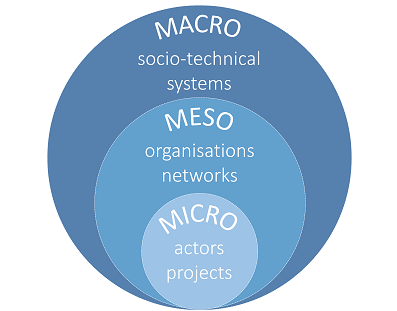Emerging Science & Technology
View project portfolio
The rapid rise of technologies such as AI, biotech, and blockchain presents opportunities for societal progress, but also risks deepening inequalities. Our aim is to ensure these technologies remain connected to societal challenges. In that, we focus on digital inclusion, as marginalised groups, such as people with a low socioeconomic position, are often left out of digital imaginaries. To incorporate their and other citizens’ perspectives, we develop creative science communication methods that foster dialogue between scientists and citizens. We also promote societal entrepreneurship that accelerates innovations, while balancing profit with societal value. In this regard, we collaborate with entrepreneurs, incumbents and end-users. Lastly, history of knowledge helps us to better understand current conditions and to broaden ways of thinking about possible future developments, by challenging dominant narratives and emphasising the role of historical contingency.
(Global) Health & Well-being
View project portfolio
The world faces growing disparities in access to health and social care. Athena actively contributes to universal health coverage and social justice, overcoming financial and geographic barriers, and reducing inequalities by supporting vulnerable communities. To ensure that health innovations contribute to equity and strengthen overburdened healthcare systems, they must be informed by first-hand insights of patients and healthcare professionals. Patient engagement in research, policy and practice ensures that solutions are more relevant and responsive to needs. Additionally, recognising the significant environmental footprint of the healthcare sector, Athena is dedicated to advancing sustainable health systems and patient-centered care practices.
Food, Environment & Sustainability
View project portfolio
The climate crisis, environmental degradation, and food insecurity are interconnected existential threats that urgently demand action. Human activities such as urbanisation and agriculture are pressuring the environment and lead to climate change. The consequential burdens are distributed unevenly, disproportionately affecting vulnerable populations. Our research focuses on developing fair, equitable solutions that prioritise the needs of those most affected. One of our key focuses is food system transformation, as this directly addresses the core of many of the above intertwined challenges.
Competencies for Transformation
View project portfolio
We develop, evaluate and embed methodologies, tools and spaces to train students, professionals, researchers in transdisciplinary approaches. This will support them in facilitating and participating in successful multi-stakeholder processes to address complex societal problems. Our research in this domain centres around community service learning, spaces for transformation and tools for transformation.
